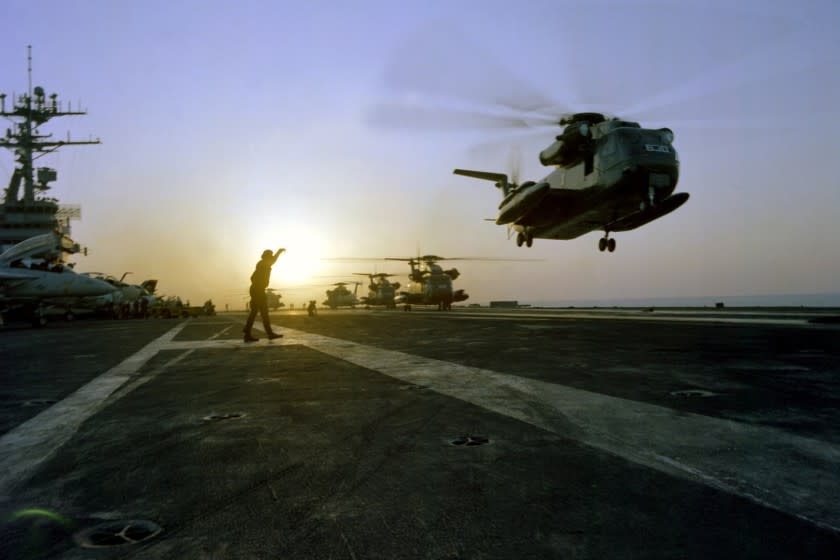Review: 'Desert One' details how a 1980 Iran hostage rescue attempt went awry

The Los Angeles Times is committed to reviewing new theatrical film releases during the COVID-19 pandemic. Because moviegoing carries inherent risks during this time, we remind readers to follow health and safety guidelines as outlined by the CDC and local health officials. We will continue to note the various ways readers can see each new film, including drive-in theaters in the Southland and VOD/streaming options when available.
From the legendary documentary filmmaker, and two-time Oscar winner, Barbara Kopple (“Harlan County, U.S.A.” and “American Dream”), comes “Desert One,” the story of Operation Eagle Claw, a failed rescue mission during the Iran hostage crisis in 1980.
Kopple weaves together archival news footage and interviews with everyone from hostages to hostage takers, from special forces servicemen to President Jimmy Carter. If there’s someone who was involved in this situation, Kopple tracks them down to unpack just what happened, even an Iranian passenger on a bus that the mission accidentally intercepted.
It’s an autopsy of sorts, offering context for the mission, the situation in Iran and the U.S., and the political ramifications on President Carter’s reelection (which he ultimately lost). It’s an extraordinarily detailed dissection of the mission itself, the planning, the men involved and what exactly went wrong.
The exhaustive “Desert One” follows a standard formula. It’s produced by the History Channel, so there’s no surprise that the talking heads interviews and sweeping score feel decidedly of that TV military hagiography genre. The second act becomes bogged down in the details of planning and execution of the rescue mission, predominantly rendered with animated sequences. But Kopple carefully threads the needle on connecting the political choices behind the mission, one that Carter long kept as a Plan B, choosing instead to pursue a path of diplomacy to free the hostages. That choice, and the tragedy of the mission, cost him his second term, losing to the hawkish Ronald Reagan.
Though the film initially feels like a patriotic tale of a daring mission, this isn’t a story of U.S. military triumph, it's one of sorrow. Before the title sequence, a phone call with Carter authorizing the mission is advertised with onscreen text as a never-before-heard classified recording, which suggests the filmmakers' special access to these materials. The Desert One tragedy makes for prime sympathetic military storytelling: existing safely in the past, the details previously unknown and tied to a highly recognizable event.
This angle feels at odds with Kopple’s investigative instincts, clearly more drawn to the larger forces and impact: how the hostage crisis was wielded for political and cultural gain, by both Ayatollah Khomeini and Reagan. That’s the real meat of the story, not necessarily how long the special ops forces trained with night vision goggles. The political and cultural aspect of the film is incredibly dynamic, not so the lagging midsection, bloated with logistics.
When all the media and politicking is swept aside, and it’s just the transcripts and the phone calls, you understand the way in which this president, a former Naval officer dedicated to his personal belief of peacekeeping, wrestled with the right way to handle this. That morality and willingness to do the right thing, not the political thing, is truly rare to witness in this day and age.
Katie Walsh is a Tribune News Service film critic.

